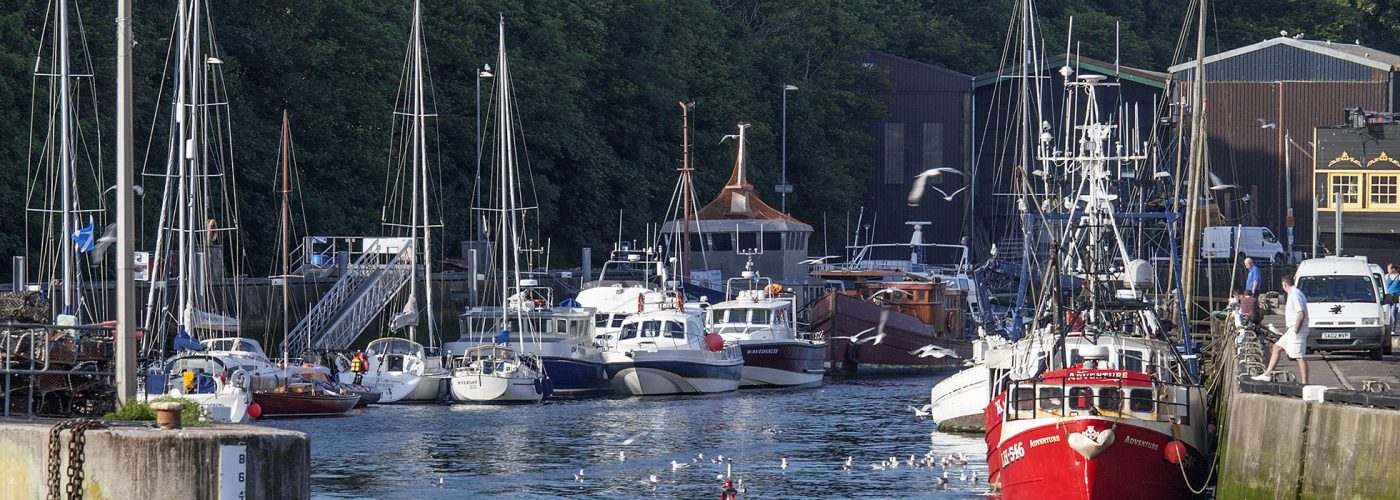One of Scotland’s most imaginative and innovative engineering design specialists has taken on a crucial role in the regeneration of Eyemouth boat yard, one of the last remaining repair facilities for the East Coast fishing fleet and the RNLI.
Planning permission has just been granted for a state-of-the-art repair and maintenance facility at the Borders port as part of an ambitious £2 million investment. The designs and planning were prepared for the Edinburgh-based Applied Engineering Design (AED).
The plans envisage the removal of existing sheds and their replacement with modern buildings which will accommodate bigger boats as well as facilitating year-round working. The vision for the project also encompasses slipways and offices, education and hospitality facilities.
It is the latest high profile project for AED, which has also been commissioned for work on the multi-billion pound Battersea Power Station development in London – dubbed the toughest project in the world – while last year AED successfully took on the restoration of the iconic but troubled Ross Fountain in Edinburgh’s Princes Street Gardens.
Tim Hetherington, Director of AED, said: “The connection of the Eyemouth boat yard with the sea is unshakeable and it is a key employer in the town, providing work for up to 20 people. Without it, boats would have to go to Arbroath or Whitby for out-of-water repairs.
“The plans we prepared employ the latest civil and structural engineering techniques for work in the inter-tidal zone, the multiple sheds which will increase the range of boats the yard can handle and the educational facilities, including a viewing gallery.
“When the transformation is complete Eyemouth boat yard will be embraced as a focal point in the community which will provide valuable training and apprenticeship opportunities as well as skilled jobs.”
The yard was taken over last year by Patrick Flockhart, who intends to turn around its fortunes with investment in plant and people. Trading as Eyemouth Marine, it intends to become a “garage for the sea”, but also to serve “sea, wind and shore”, using marine skills to serve onshore industry as well as offshore wind arrays.
It is anticipated that, with the necessary permissions, work will begin on the Eyemouth yard in the middle of 2019.
AED was founded in 2008 and now has offices in Glasgow, Edinburgh and Bath. It has a turnover of £650,000 and employs 10 people. Unusually, AED still undertakes most detailed design and coordination work in house.
The company serves individuals and businesses in sectors including industry and commerce, sport and education, infrastructure and property maintenance.





